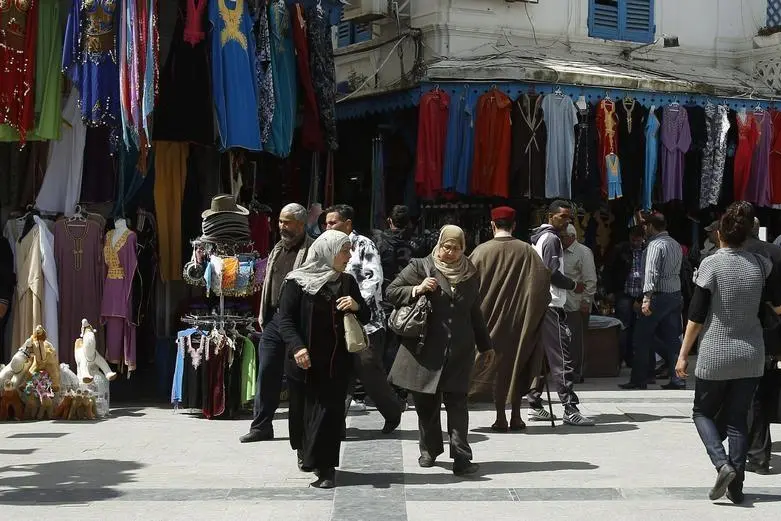PHOTO
Economic reforms aimed at revitalising Tunisia's economy are taking shape, as the government moves to mitigate headwinds while working to balance the demands of national stakeholders and international lenders.
The reforms, which range from a new investment code to increased infrastructure spending, offer a chance to stimulate a broader economic recovery and boost employment levels, particularly among Tunisia's youth.
Targeting investmentIn mid-September the government rolled out its Strategic Development Plan 2016-20 (Plan Stratégique du Développement, PSD), which included sweeping economic and fiscal reforms, targeting annual GDP growth of 5% over the period, compared to an average of 1.9% achieved under the previous five-year plan.
While the new PSD forecasts a gradual recovery in the coming two years, it predicts that GDP growth will ramp up from 2018, based on ambitious underlying assumptions.
The PSD expects public investment to rise by 50% by 2020, to reach TD45bn (€20.5bn), with local private investment to increase by 65% to TD62bn (€28.3bn) and foreign direct investment to expand by 80% to TD18bn (€8.2bn).
A new investment code - to be released before the end of the year, according to Prime Minister Habib Essid - could help restore investor interest, with modernisation of the government administration and a focus on public-private partnerships also expected to ease hurdles to doing business.
Short-term approachWhile generating such elevated levels of investment will likely take time, other sources of financing are expected to bridge the gap in the near to medium term.
At the start of October the World Bank announced a $500m loan designed to finance the proposed economic reforms, with a focus on restructuring its state-owned lenders. This comes on the heels of a TD867m (€395.3m) capital injection into Société Tunisienne de Banque and Banque de l'Habitat earlier this year.
The World Bank also granted Tunisia favourable credit terms on another €178m in early October to fund road construction projects in several governorates, along with nearly $1m in aid for technical consulting on the project, according to the Ministry for Development, Investment and International Cooperation.
Investment could also be bolstered by the eventual signing of a new free trade agreement (FTA) with the EU. The bloc launched negotiations with Tunisia in mid-October, which could see an expansion of the existing Euro-Mediterranean Association Agreement (EMAA), signed nearly two decades ago.
Unlike the EMAA, which largely focuses on the trade of goods, an updated FTA could see Tunisia gain more preferential terms for trade of services, as well as looser regulations concerning agricultural products.
Competing interestsThe Tunisian government could face a difficult balancing act of internal and external interests as it moves ahead with its reform agenda.
The IMF has repeatedly urged Tunisia to cut state spending, highlighting the 13.5% of GDP spent on public sector salaries - one of the highest levels in the world.
According to Philippe Trape, principle country economist for Tunisia at the African Development Bank, public sector recruitment since the 2011 uprising has increased wage costs by around 75%, equivalent to 38% of the government's budget. While government employment was seen as a way of responding to social demands, Trape argues that the bureaucracy could function more efficiently with half as many staff.
However, the government is also facing pressures from domestic stakeholders, such as the country's largest labour union, the Tunisian General Labour Union (Union Générale Tunisienne du Travail, UGTT) to increase wage spending.
After a new round of negotiations with the union in recent months, the government moved to increase the salaries of some 800,000 public sector employees in September - the second such increase this year. According to media reports, this is expected to cost around $1.2bn.
Speaking to media in October, Essid said, "We know very well reforms come at an expensive price, but we need social peace in the coming period to push ahead with urgent changes due to the critical economic situation."
The IMF will continue to play a key role in the reform debate, with Tunisia seeking a new credit programme from the lender worth at least $1.7bn that could be contingent on further fiscal reforms.
In a visit to Tunisia in September, the IMF's managing director, Christine Lagarde, urged the country to reduce its fiscal deficit, which reached an estimated 5.8% of GDP last year, and curb the public sector wage bill.
Signalling a move in that direction, Essid told media in September that the government plans to increase the retirement age from 60 to 65, which could help address the growing deficit in the pension system.
© Oxford Business Group 2015





















